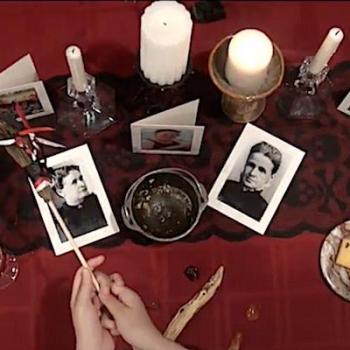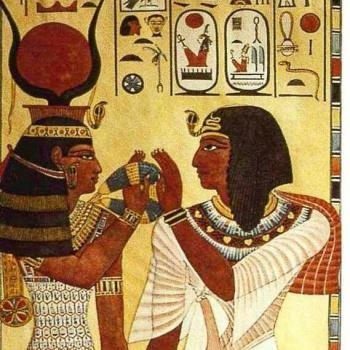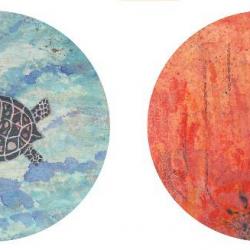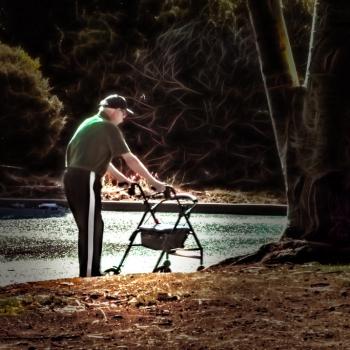As with all aspects of life, pagans celebrate Summer Solstice, Midsummer, or Litha in a variety of ways. The fact that we have so many different names for this time of year highlights our diversity, which is a major strength of our community. Many pagans enjoy spending Midsummer in a quiet celebration of the sun, turning inward for meditation and introspection.
Personally, I like to party like a wild woman. For four days straight.
Three years ago, I found an announcement for a new event in Dover, Delaware, called Firefly Music Festival. I convinced my husband that it might be a fun time, and he hesitantly agreed to go with me since we’re both music fanatics. Even though we were a good deal older than most people there, we ended up having one of the best weekends of our lives and have returned every year since. In its fourth season it has become the largest music festival on the East Coast, and I consider Firefly my Midsummer home. On the coldest days of this past winter, thoughts of Firefly warmed me and sustained an ember of excitement that few other things in my life have. This weekend we will travel to Delaware to celebrate the solstice once again.
As the sun reaches its zenith, we will bathe in its late June rays and the Atlantic humidity while listening to talented musicians spread out over 300 acres. Breezes and occasional showers will refresh us as we nap in grassy fields to hypnotic tones. We’ll drink to Bacchus in the wine garden and toast him again in the brewery. We’ll wander through the cool forest on our way to another stage. And as the Midsummer sun begins to set, our energy will return and we’ll dance for hours with 90,000 young people to a throbbing beat that permeates every cell of our bodies. It is ecstatic. It is human. It is divine.
In his play, The Bacchae, Euripides discusses the timeless balance between the worship of reason and logic, represented by Apollo, and the worship of passionate emotion and chaos, represented by Dionysus (Bacchus). The story features a young king who ignores the advice of his elders and shows disrespect to the god of revelry out of dedication to the god of reason. He is soon driven mad and then ripped to pieces by Dionysus’ blinded followers – including the king’s own mother. This poignant tale can be interpreted as a warning that ongoing suppression of the human desire for celebration and emotional release, even in the name of spiritual growth and the development of the mind and soul, can lead to tragic consequences. In lighter terms: all work and no play makes Jack a dull boy.
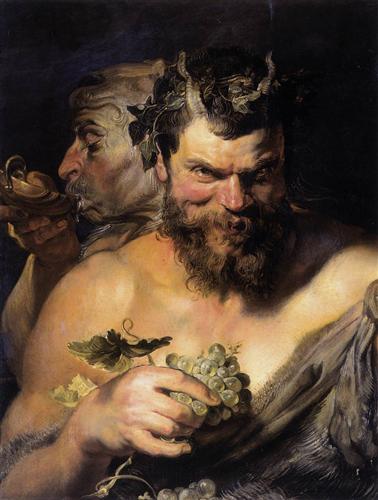
Euripides’ play also presents a warning against excessive indulgence in carnal desires. The young king is ripped apart and Dionysus himself sends his mother and her father into exile as punishment for allowing themselves to be carried away by such debauchery. Our revelry has very real consequences in our daily lives. The downside of Firefly is seeing young people taking risks with alcohol, drugs, tobacco, poor diet, and lack of sleep. The very sun that we revere burns unprotected skin and speeds dehydration. These lessons are not easily forgotten. We have told our sons that we will not be taking them to the festival until they are at least in college and have demonstrated an appropriate level of maturity. Firefly can can present hazards to fragile souls who do not yet understand the potential long-term effects caused by certain choices in life.
Yet Firefly is my Midsummer pilgrimage. For four days a year, I lose myself in a teeming crowd of people, soaking up their youth, their exuberance, their love for life and heartache for loss. My husband and I reconnect in a spiritual way as we talk and laugh and float on waves of the music we have fallen in love with. And we dance. And we dance. And we dance. Then we return to our everyday lives emotionally renewed and refreshed, ready to focus on the rational and responsible tasks that make us better spouses, parents, employees, and citizens. And the daylight grows shorter and the nights grow longer. But the festival celebration permeates our spirits and enriches our relationships with laughter, play, and the dance of balance between reason and chaos, leading up to the next Midsummer at Firefly. So mote it be.
Dionysus
I bring ye wine from above,
From the vats of the storied sun;
For every one of yer love,
And life for every one.
Ye shall dance on hill and level;
Ye shall sing in hollow and height
In the festal mystical revel,
The rapurous Bacchanal rite!
The rocks and trees are yours,
And the waters under the hill,
By the might of that which endures,
The holy heaven of will!
I kindle a flame like a torrent
To rush from star to star;
Your hair as a comet’s horrent,
Ye shall see things as they are!
I lift the mask of matter;
I open the heart of man;
For I am of force to shatter
The cast that hideth -Pan!
Your loves shall lap up slaughter,
And dabbled with roses of blood
Each desperate darling daughter
Shall swim in the fervid flood.
I bring ye laughter and tears,
The kisses that foam and bleed,
The joys of a million years,
The flowers that bear no seed.
My life is bitter and sterile,
Its flame is a wandering star.
Ye shall pass in pleasure and peril
Across the mystic bar
That is set for wrath and weeping
Against the children of earth;
But ye in singing and sleeping
Shall pass in measure and mirth!
I lift my wand and wave you
Through hill to hill of delight:
My rosy rivers lave you
In innermost lustral light.
I lead you, lord of the maze,
In the darkness free of the sun;
In spite of the spite that is day’s
We are wed, we are wild, we are one.
Aleister Crowley




